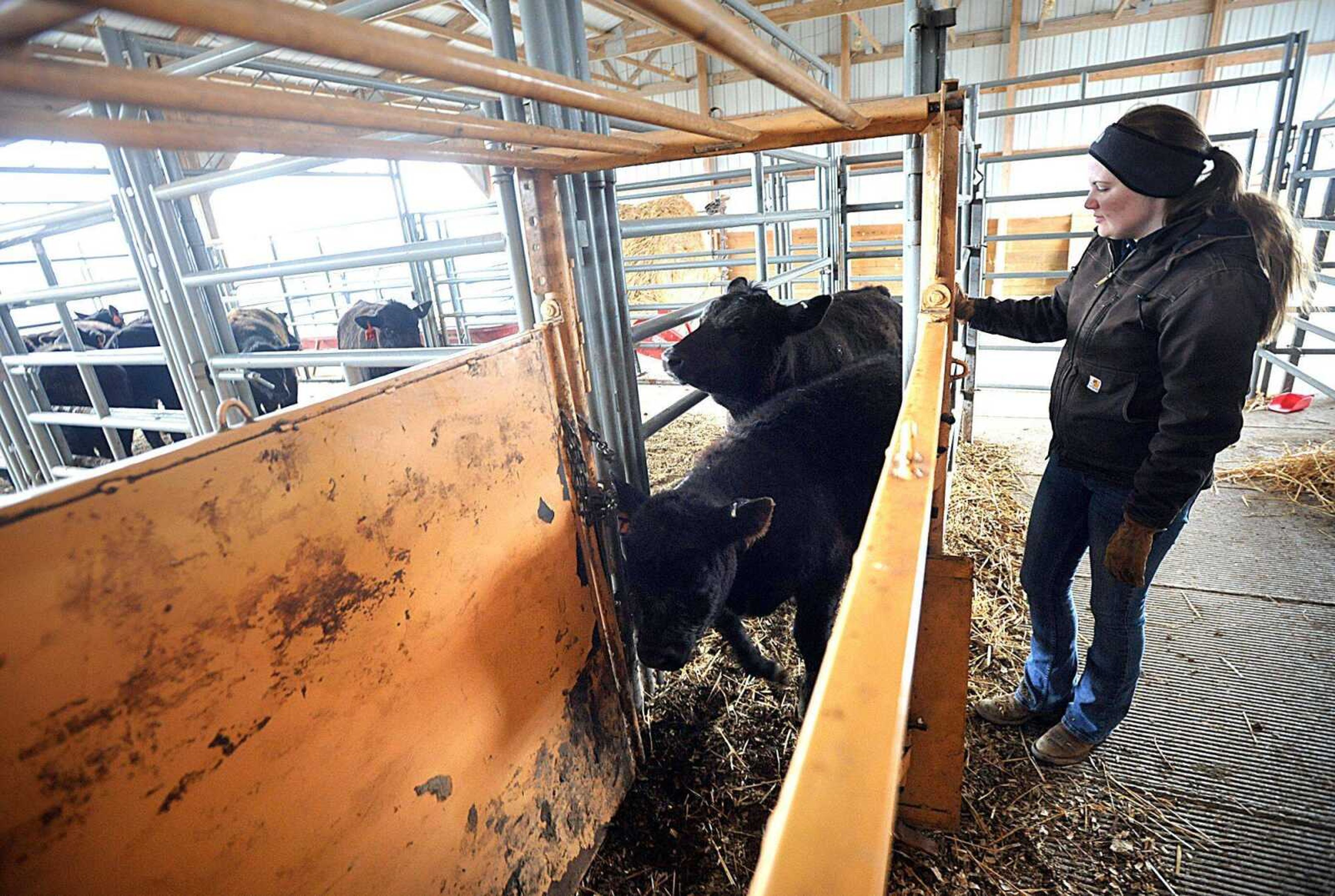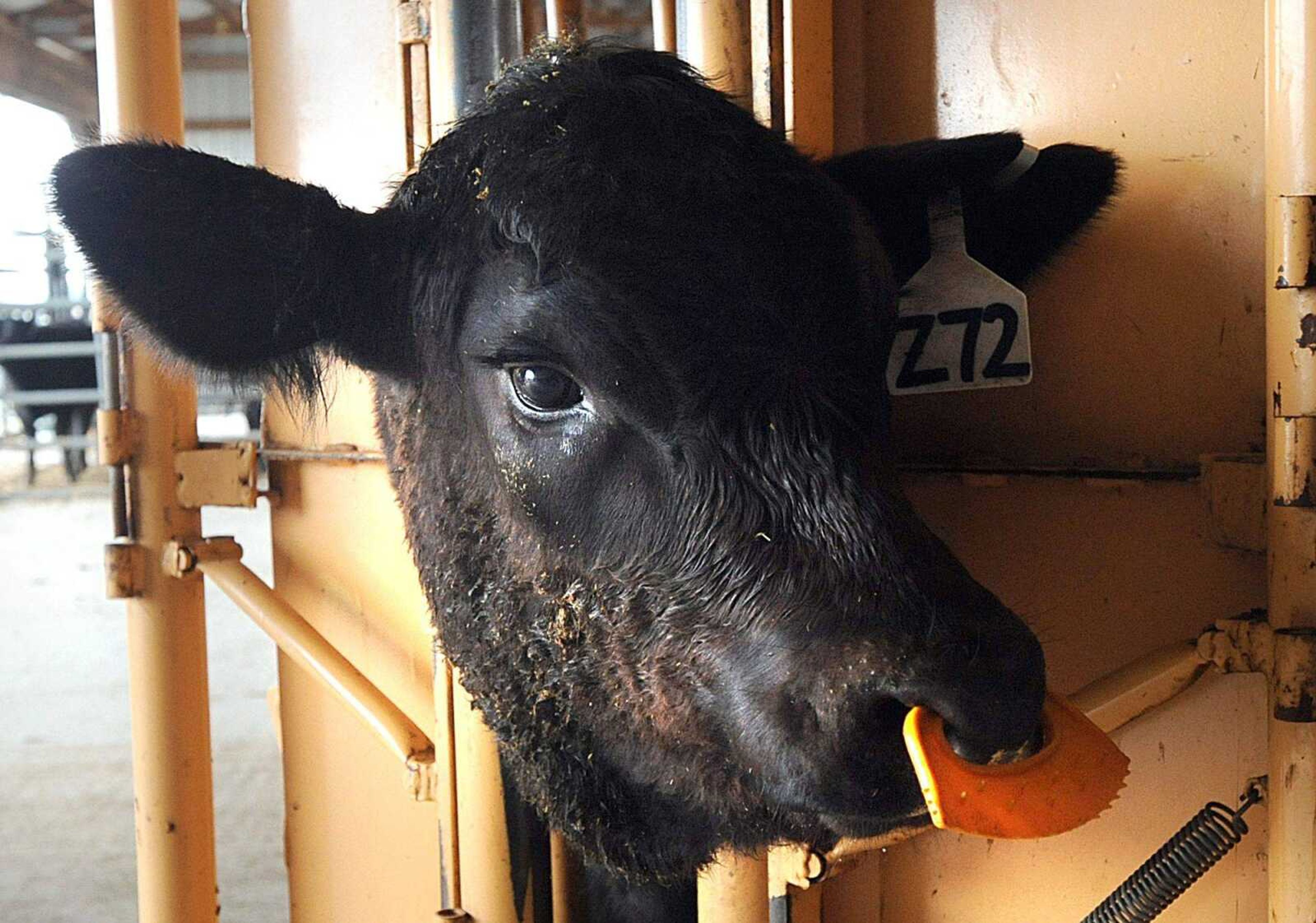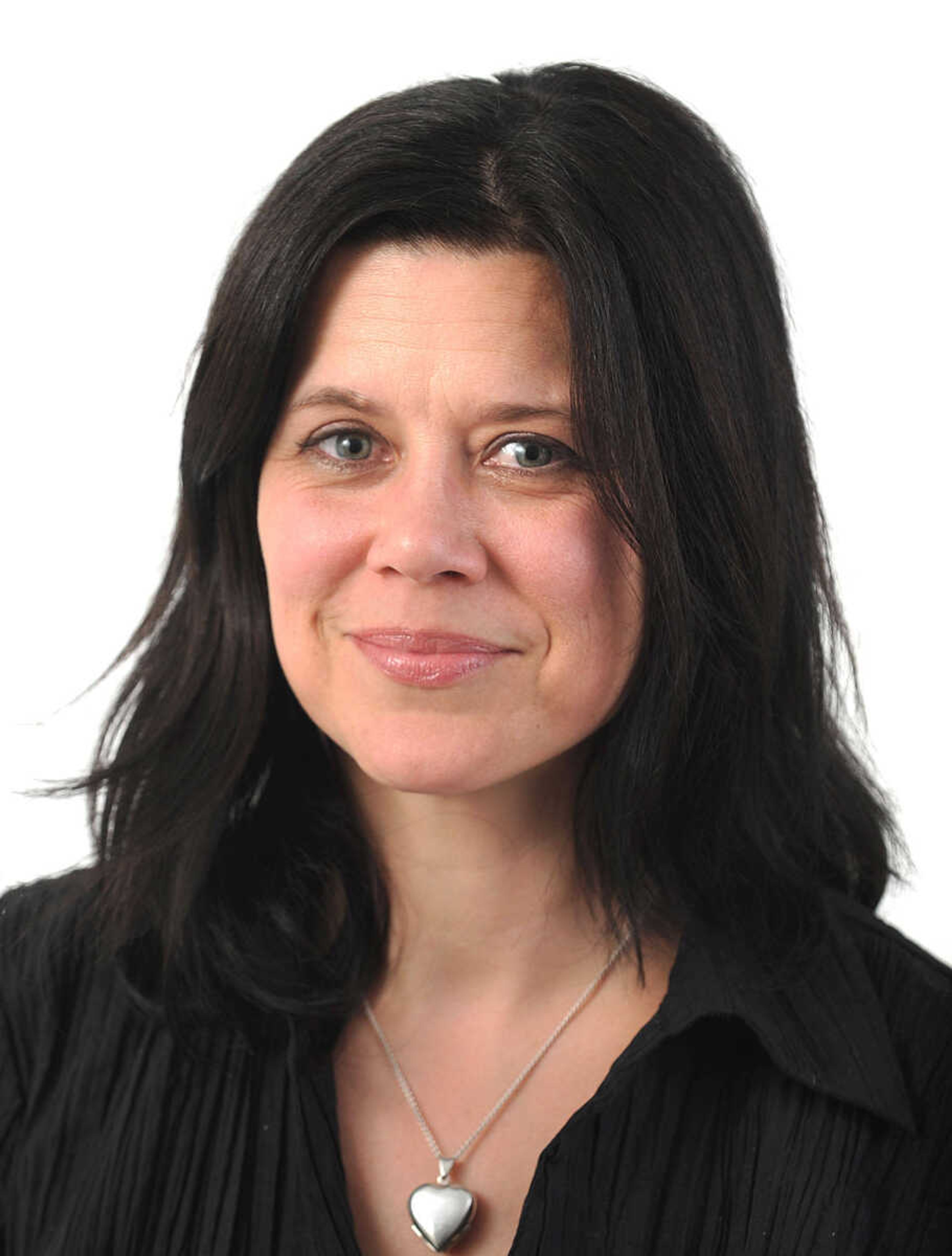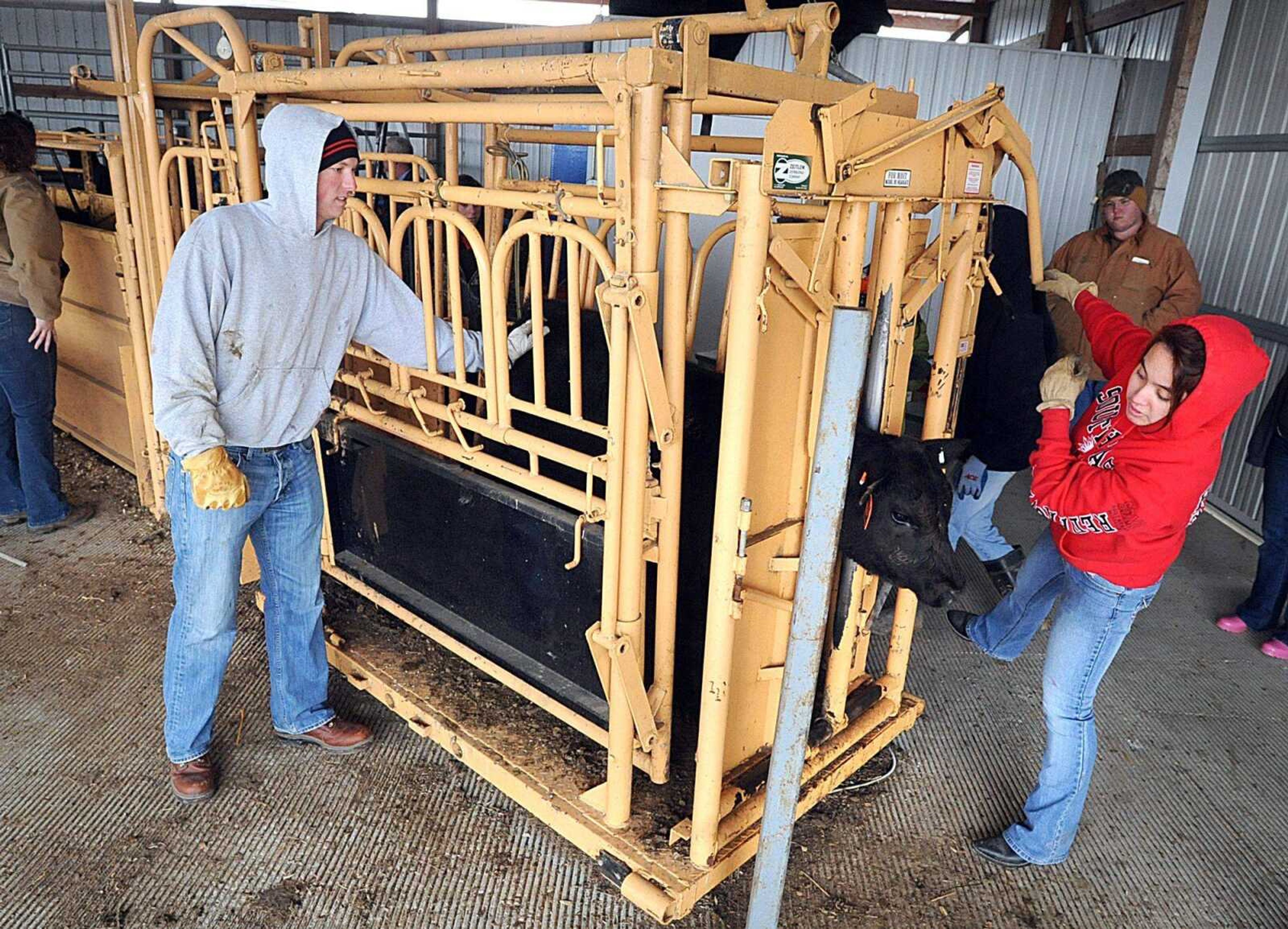Somewhere in Japan this year, someone in the mood for steak will walk into a restaurant, scan a bar code on the "meat of the day" board with a smartphone and be told the grass-fed beef they are about to enjoy was raised at Southeast Missouri State University's David M. Barton Agriculture Research Center. Modern farming is a global enterprise and Southeast students are being taught how to survive in agribusiness.
Farming is not like other businesses, said Dr. Michael Aide, chair of the Department of Agriculture at Southeast. Farmers have little control over their input prices or how much they can charge for goods because both aspects of the industry are set by others, such as commodities exchanges, he said. So when feed or fertilizer costs go up, they can't increase prices to offset the expense, as other businesses would. The most they can do, he said, is decide when to sell what they produce.
It's not a new dilemma.
John F. Kennedy said "The American farmer is the only man in our economy who buys everything he buys at retail, sells everything he sells at wholesale, and pays the freight both ways."
For decades, federal legislation has been created, in part, as an effort to provide insurance against unforeseeable losses stemming from market fluctuations.

Aide said some of the legislation aimed to help farmers has ended up favoring large operations, which he thinks is likely the opposite of what lawmakers intended.
A modern farmer with any size farm has to be able to make the business work without knowing what to expect and be able to make adjustments accordingly, within very tight margins, Aide said. Students learn to farm with traditional organic methods and how to grow experimental, hybridized crops to ready them to meet whatever the market demands.
The research farm in Gordonville provides experience in producing corn, soybeans and beef, and the classrooms at Southeast teach how to make a living at it on a global scale.
Farmers are no longer competing against their neighbors, Aide said. Missouri soybean producers' biggest competitors are in Brazil, he said. And their produce is being shipped worldwide, too. China last year bought $1 million of Missouri soybeans, which were shipped down the Mississippi River, "the gateway to the world," on barges, Aide said.
The middle class in China, India and Indonesia has grown exponentially and their buying power and demand for better quality food also has increased. Every possible cultivable area in China already is in use, Aide said. Vast purchasing power because of their vast numbers -- the U.N. Population Division and Goldman Sachs estimated China would have approximately 1.4 billion middle class consumers by 2030 compared to 365 million in the U.S. -- has changed the market. The future farmers he teaches have to be knowledgeable of that movement. Some already have their smartphones set so they can easily reference the price of soybeans in Brazil, he said.

"Aggies [agribusiness students] are pretty well globalized, more than the typical student," Aide said.
"Food moves to money," he added.
Aide said the demand is high for people educated in the business of agriculture and he receives many more interview requests than he has students.
"If you can't make money on it, you don't do it for long," said Dr. Julie Weathers, a professor in the Department of Agriculture. Weathers grew up on a Texas farm and her father was a high school agriculture teacher. She was drawn to the profession by a love for animals, but said that farmers first have to understand what makes sense financially.
Everything students in her animal handling class learn ultimately contributes to improving the bottom line. The floor of a handling pen is grooved to cause fewer slips and is less stressful for the cattle raised there. Gentle weaning methods that don't require separation of cow and calf also reduce strain on the animals. The loading and holding mechanisms of an animal pen are built with safety considerations to reduce losses. Cattle are tagged in both ears to ensure they are tracked accurately in case any problems are detected, either on the farm or after they leave. DNA is collected during tagging to document family lines. Every quality measure increases the end price, she said.
Tony Zerrusen, a student in Weathers' class, also grew up on a farm. His family's grain farm in central Illinois isn't large enough for both him and his brother to make a living there, so he's taking his knowledge of the industry to the corporate world. He has been offered a job after graduation at CGB Enterprises Inc. in Iowa, where he will buy and sell corn, bean and wheat on the commodities markets.
Farmers are becoming more educated, Zerrusen said, but the demands put on them have caused larger operations to consume many small family farms, resulting in fewer individuals being involved in the industry.
"We're losing our voice," he said.
Zerrusen said his father and grandfather are "very intrigued" about what he has learned in the agribusiness program.
"What I'm learning is just different. It's based on numbers, graphs and plots," Zerrusen said. "At school they tell you how to work prices and plan ahead. Farming is so much more advanced than raising animals and raising crops."
salderman@semissourian.com
388-3646
Pertinent address:
Route 25, Gordonville, Mo.
Connect with the Southeast Missourian Newsroom:
For corrections to this story or other insights for the editor, click here. To submit a letter to the editor, click here. To learn about the Southeast Missourian’s AI Policy, click here.








